Navigation auf uzh.ch
Navigation auf uzh.ch
2018-12-19: For the second time, the University of Zurich offered a seminar in which students could acquire first-hand knowledge of what it means to become a social entrepreneur and develop a business plan to solve a social problem. In their final pitch, seven teams competed in front of a jury for an award of 10,000 Swiss Francs to kick-start their business. The jury decided to award the price to Keats, a project by Anaïs Aeschlimann, Nithusya Jalanthiran and Nina Mühlebach. Keats aims at promoting social interaction between migrant and Swiss children with a mobile application which allows parents to find a lunch spot at another families’home for their children during their lunch break at school. To ensure the intercultural exchange, a Swiss native family can only send their child to a foreign family and vice versa. The goal is to foster social integration, accelerate language learning and facilitate intercultural exchange.

2018-12-12: Predicting economic decisions of individuals remains a challenge to scientists. The idea that we make purchasing decisions based on stable personal preferences is widespread. However, this assumption does not explain why we are unsure about some decisions and, occasionally even want to undo them. In a paper recently published in Nature Neuroscience, Christian Ruff and his co-authors show that this fickleness is caused by systematic distortions of our processes of perception.
The authors show that preferences are the result of a momentary comparison process between sensory perceptions and the expectations and experiences of the person making the judgement. Just as the brain recognizes, sorts and compares sensory impressions with expectations and experiences (red, four wheels, sleek design, standing in a garage) to perceive an object (a Ferrari), it also constructs preferences anew in every situation. Whether we buy a certain gift - e.g. a beautiful watch - therefore also depends on which shop we are in, which watches we expect to find in this shop, and which other watches we have already seen and judged. In their research, Christian Ruff and his research colleagues show how these environmental influences can predict our preferences and how they affect how certain we are that we have made the right decision.
Paper in Nature Neuroscience

2018-12-05: Farmers in developing countries often rely heavily on their yearly harvest to feed their families. A bad crop can have severe consequences for their livelihood. Despite the significant advantages crop insurances would offer in alleviating this risk, only a small percentage of farmers insure their crops. Simply moving the date of payment from beginning of the farming season to harvest time, increased insurance adoption to over 70 percent, as Lorenzo Casaburi found in his randomized control trial.
Press Release
Paper in American Economic Review

2018-12-05: The Swiss National Science Foundation has awarded Lorenzo Casaburi with a SNF Excellenza Grant of 1.1 mio francs for his project. Congratulations.

2018-12-04: In his column in Finanz und Wirtschaft David Dorn looks back on the development of the trade war and the turning point in US trade policy. The current conflict between the US and China creates major problems for the WTO: under what conditions do protective tariffs make sense and how do you define the security interests of a country? These and other questions are currently being discussed under pressure from the US. But as long as both nations wait for the other to give and unless the US tries to improve its competitiveness by investing into education, research and infrastructure, an end to the trade war very unlikely.
2018-11-30: A project initiated by Guilherme Lichand and the Center for Child Well-Being and Development, in collaboration with UNICEF’s Office of Innovation and UNICEF Malawi, is the first attempt to use wearables in the developing world for high-frequency data collection and intervention. Data collection in developing countries often involves high time and monetary costs, as it is hard to reach families living in remote areas. Based on the data and bio markers symptoms of malaria or anemia can be detected earlier. The project will also test a health referral system, which will allow for interventions via audio or text-messages in collaboration with local healthcare providers.

2018-11-30: The European Research Council supports outstanding researchers who are in the middle of their research careers with its Consolidator Grants. Ralph Ossa was one of five UZH researchers to receive a grant of 1.4 million Euros for his project "Deep Integration Assessments". It deals with controversial aspects of modern trade agreements: After decades of liberalization, tariffs have reached historically low levels, leaving little scope for further tariff cuts. Therefore, today’s trade agreements largely revolve around non-tariff issues in order to achieve further economic integration. His project examines the most controversial aspects of such integration agreements, namely investor protection, regulatory cooperation and protection of intellectual property rights.

2011-11-27: Prof. Franz Ritzmann taught theoretical and practical social economics at the Faculty of Economics from 1969-1996. His teaching activities included monetary and credit policy as well as the theory of financial enterprises. As the first director of the Institute for Empirical Economic Research, he played a central role in forming the Department as we know it today. Aside his academic work he shared his knowledge with the general public. He authored many newspaper articles in which he explained and discussed current economic topics clearly in an accessible way.
Franz Ritzmann died at the beginning of 2018 at the age of 88. From his broad legacy, the Department has accepted a number of titles from the fields of monetary theory, monetary policy and dogma history. These represent his main areas of interest and research. The books contain an ex libris stamp referring to their original owner. Thanks to this generous donation, the next generation of academics will also have access to this curated selection of works.
2018-11-16: Science Stories, the research magazine by EU GrantsAccess interviews Florian Scheuer on his research. Ideas of social justice motivate many of his questions, e.g. by analyzing the value of various professions and jobs in light of their contribution to the welfare of society as a whole. Many highly paid professionals create no social value at all, he points out, while e.g. Kindergarten teachers are immensely underpaid, measured against the societal value they create. He is currently working on improving tax systems in a way that not only rectifies such inequalities by redistribution, but also incentivize people to consider professions with high societal value. This project is funded by an ERC Starting Grant.
EU GrantsAccess is a joint centre of the UZH and the ETHZ. It promotes research on an international level by means of supporting scientists and their research projects, i.e. regarding European and international funding instruments. More
2018-11-14: Data collection in developing countries is often high in time and monetary costs as it is hard to reach families living in remote areas that are under-connected by transportation and communications infrastructure. In face of those challenges, new technologies such as wearable devices offer a leapfrogging opportunity for the collection of essential data, they provide cheap, reliable, and novel forms of information. Guilherme Lichand and his team from the Center for Child Well-Being and Development (CCWD) are spearheading a project using wearables in the developing world for high-frequency data collection and interventions in the context of a longitudinal study. The project is a partnership between CCWD, UNICEF Malawi and UNICEFinnovation.

2018-11-13: The European Economic Association (EEA) has elected Dina Pomeranz as a member to the Council. She will sit for a term of five years, starting on January 1, 2019. Of the 32 Members of the Council, two members are from Switzerland. Congratulations.
2018-11-12: Technological progress began fuelling fears back in the 1830s. The resulting structural change devalues old knowledge and skills and deprives the people affected of their existential basis. The article in "Finanz und Wirtschaft" refers to the historical economic studies by Bruno Caprettini and Joachim Voth and concludes that, in order to avoid uprisings, workers in vulnerable sectors should be offered alternative jobs or a guaranteed minimum income.
2018-11-09: Young men living in the US have above average unemployment rates. They are missing out on crucial years building the foundation for a career. “At some point, you can have a bit of an effect of a lost generation,” David Dorn is quoted. “If you get to the point where you’re turning 30, you’ve never held a real job and you don’t have a college education, then it is very hard to recover.” Young people who get a rocky start in the job market face a lasting pay penalty. Other research by David Dorn and co-authors partly blames the decline in employed, marriageable men for the recent slide in nuptials and increase in out-of-wedlock births.
Bloomberg Article
Also in: The Gazette
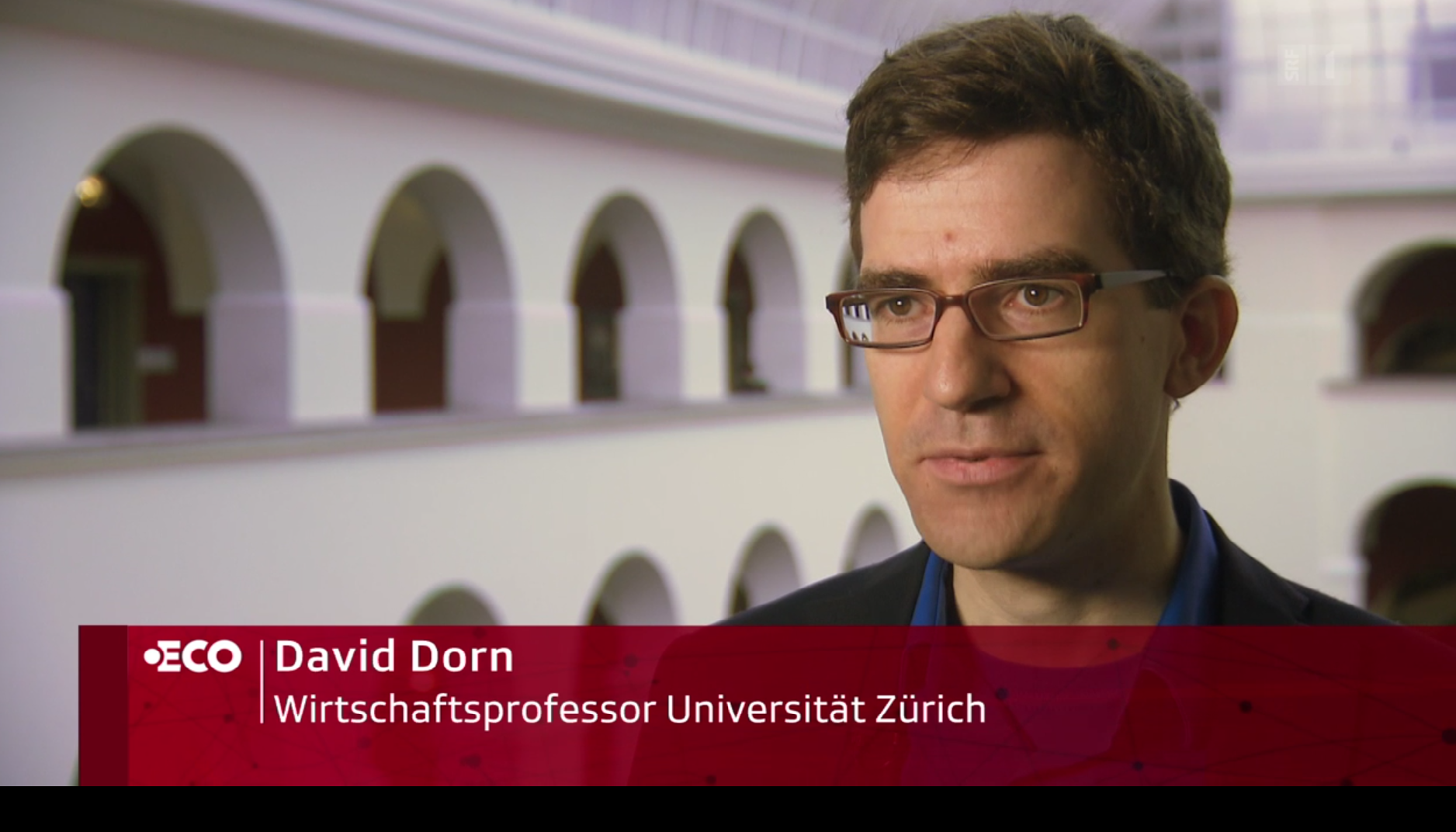
2018-11-06: David Dorn is interviewed by «SRF Eco» about China's targeted tariffs on selected US products: "Previously, specific industries were subject to tariffs in retaliation to preceding violations of trade rules. These latest tariffs are levied to inflict broad economic damage on a region as a whole and can therefore be regarded as being politically motivated". Most recently, the Chinese have imposed targeted tariffs on specific goods such as soybeans, thus weakening the economy in the rural regions in which a majority voted for Donald Trump.

2018-11-04: Over the last decades, the job market has undergone fundamental changes. The demand for manual labor has sunk significantly while the number jobs requiring cognitive skills such as creativity, analysis and problem-solving have increased. The NZZ am Sonntag quotes Nir Jaimovich’s recent paper in which he shows that women benefitted from this change in required skills. ‘Today,’ he is quoted, ‘you will find significantly more women in well paid jobs than back in the 1980s’.
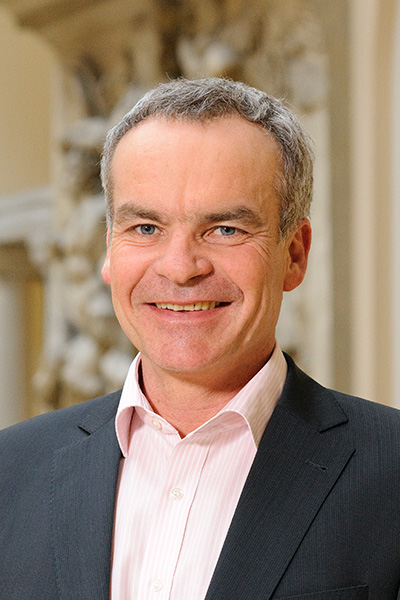
2018-10-30: A recent paper commissioned by State Secretariat for Economic Affairs (SECO) and co-authored by Josef Zweimüller, Sandro Favre and Reto Föllmi (University St.Gallen) analyzes the integration of immigrants in the local labor market. Success is measured by their probability of being in work and the income generated. Over time, immigrants move to similar employment and wage rates as Swiss citizens. This level of integration is higher than e.g. in Norway or the US, as the Neue Züricher Zeitung notes. There is little difference in the wages achieved, which disproves the often-made assumption that foreign workers are replacing local workforce by offering their labor at a lower price. However, there are significant differences between probability of being in work and the generated income, depending on the countries of origin and educational background of the immigrants.
Paper (PDF, 11 MB) (in German)
Article in the NZZ
Article in Die Volkswirtschaft
2018-10-10: In the past, companies have offered early retirement schemes to their elderly employees, i.e. during challenging economic times. However, research by Josef Zweimüller and colleagues shows that such an offer can do the employees a disservice. They found that men who went into early retirement ended up with higher mortality rates than their counterparts who worked until they reached regular retirement age.
Article (JPG, 4 MB) in Die Presse (in German)
Working Paper: Fatal Attraction? Access to Early Retirement and Mortality
2018-10-09: Inaugural Lectures by our new (and not so new) faculty members are available online. Watch the videos at your leisure for a summary of their research interests and findings.
2018-10-04: If a sales agent brings their customer a small gift, the customer is much more likely to make a purchase, a study by Michel Maréchal has shown. This works particularly well when the person receiving the gift is the boss. The fact that even small gifts can result in conflicts of interest has implications for the debate about where the line should be drawn between tokens of appreciation and attempted bribery.
Interview (MP3, 5 MB) on SRF 2 Kultur Kompakt (9 Oct 2018 ) with Michel Maréchal: Further considerations for the public discourse on guidelines for accepting gifts in business and political contexts.
Press Release
Paper
NZZ
Der Bund

2018-10-02: Ulrich Woitek receives a SNSF Grant (1.13 Mio CHF) for his project “Measuring Economic Growth and Welfare in 19th Century Switzerland”. In this research project he and his team will estimate regional GDPs before 1850 to improve our understanding of the Swiss development process. Additional measures from historical anthropometrics and demography offer a broad perspective on welfare in 19th century Switzerland. Congratulations!
2018-10-01: Dr. Anne A. Brenøe, has been appointed Assistant Professor of Economics of Child and Youth Development with a Focus on Breastfeeding, endowed by the Larsson-Rosenquist Foundation, starting 1 November 2018. Dr. Brenøe holds a PhD in Economics from the University of Copenhagen and has worked as a Research Associate at the Institute for Labor Economics (IZA) and the Department of Economics at the UZH. Her research interests include labor economics, the economics of educations and child development, in particular how the conditions and experiences of childhood affect the accumulation of human capital.
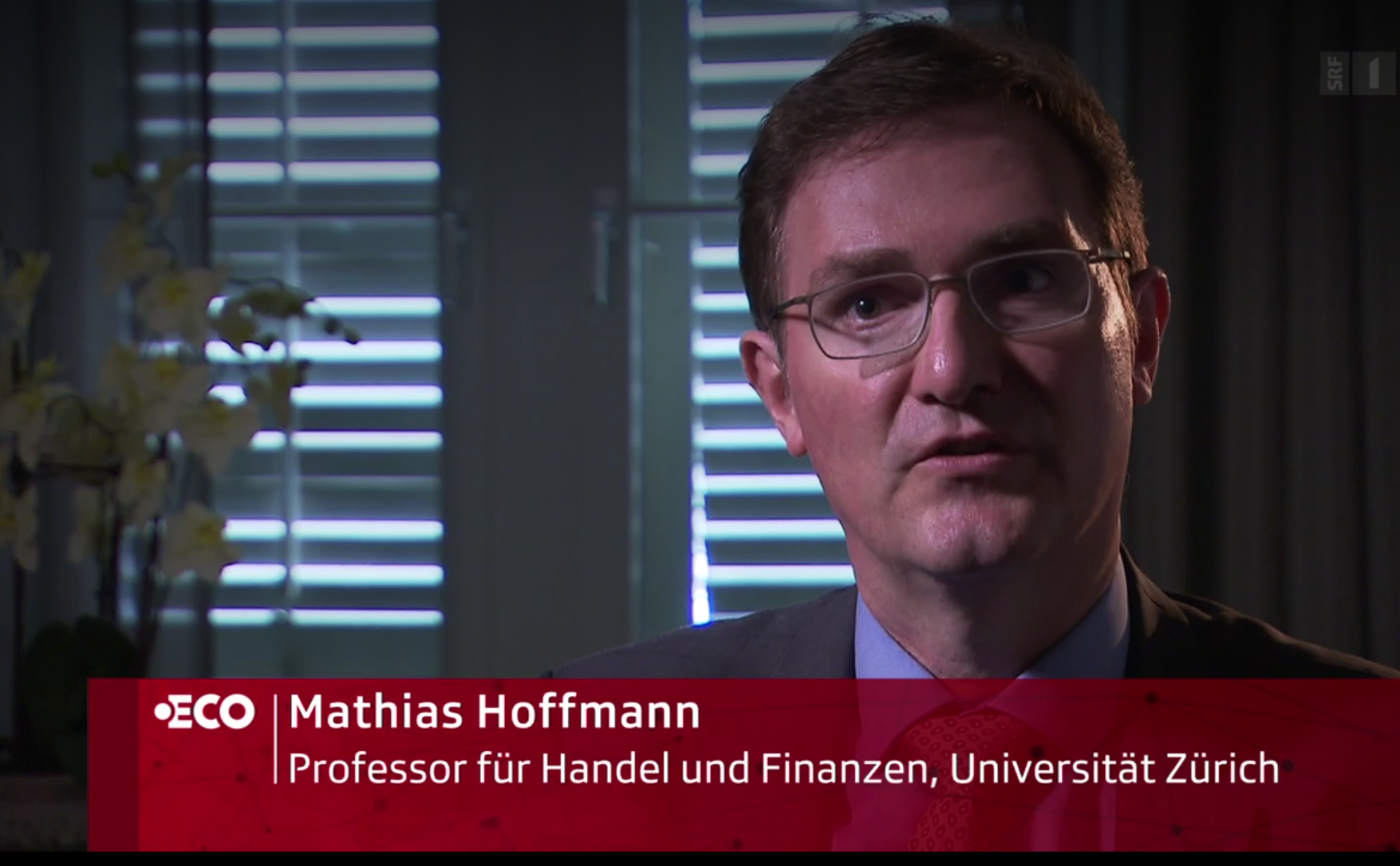
2018-10-01: When the US cut interest rates to 0%, billions of dollars went to emerging markets. The local economy was able to borrow more easily from abroad, and investors achieved higher interest rates. With the Fed's current interest rate hike to 2%, these funds are flowing back again. As a result, emerging market currencies are losing value and US dollar debt is becoming more expensive. Mathias Hofmann explains in SRF Eco how we could be walking into a self-fulfilling prophecy if investors, regardless of the fundamental data of these countries, seek a quick exit and thus exacerbate the crisis. You can access the full interview (via the link below) in which Mathias Hoffmann talks about the differences between emerging markets and the extent to which European and US monetary policy are jointly responsible for the situation in emerging markets.
Full interview (in German)

2018-09-29: Pain and the psyche are closely linked, and social factors play a crucial role in determining how people experience pain. The study shows that people experience significantly stronger pain relief if they are treated by a person who belongs to a different social group, compared to getting help from a member of the same group. Before the treatment, both groups showed similarly strong responses to pain. However, after being treated by what they considered a stranger, the participants from this group rated their pain to be less intense than the other group. This effect was not limited to the subjective pain experience. “We also saw a reduction of the pain-related activation in the corresponding brain regions,” says Philippe Tobler.
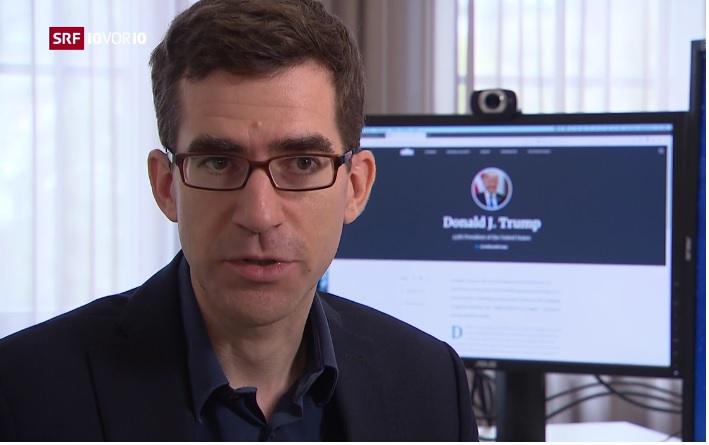
2018-09-18: The USA announced further tariffs on imports from China worth 200 billion dollars to which China reacts with counter-tariffs. 10vor10 spoke to David Dorn about the potential consequences. There is a real danger that this tariff escalation will weaken these two major economies, which could have a contagious effect on the global economy, he warns.
Video from 10vor10
2018-09-05: The "China Shock" study, co-authored by David Dorn and published in 2013, which quantified the impact of free trade with China on US jobs, made a big splash. In addition to the results as such, the study is also an example of a major development in economic research, as the «Frankfurter Allgemeine Zeitung» writes. The current empirical shift in economics is driven by digitization and modern statistical software and allows data to be aggregated from various sources as well as complex analyses that would have been inconceivable twenty years ago. The importance of empirical work has also increased: Today, empirical studies are cited more frequently than theoretical work. The gigantic data sets also pose questions for researchers: access to these data sets and the design of data protection regulations are decisive for the future of the subject.
Article in FAZ (in German)

2018-09-05: During the CESifo Annual Area Conferences, Ulf Zölitz received the Distinguished CESifo Affiliate Award in the field of Economics of Education for his paper Peers from Venus and Mars: Higher-Achieving Men Foster Gender Gaps in Major Choice and Labor Market Outcomes, coauthored by Jan Feld. Each year, the award goes to a young economist for the scientific originality, policy relevance and quality of exposition of his/her paper presented at the conference.
Congratulations!
2018-09-05: If you make a scientific experiment exactly the same way twice, you should get the same results twice: this principle is the basis for scientific studies, a common method for many areas of science. Recently, however, there have been an increasing number of cases in which even prominent studies are not reproducible. The Wissenschaftsmagazin of Radio SRF tries to find out how researchers deal with science gaining such a bad reputation and how this is discussed at the university. They also spoke to Roberto Weber about how to withstand the pressure and the wrong incentives and remain alert.

2018-09-05: The European Economic Association bestows the Young Economist Award to young economists for outstanding papers presented during of the EEA annual congresses. This year, Sebastian Dörr, graduate student from our department, received the award for his paper Collateral, Misallocation, and Aggregate Productivity: Evidence from the U.S. Housing Boom. The paper documents that rising real estate prices reduce industry productivity, because they lead to a reallocation of capital and labor towards inefficient firms.
Congratulations!
2018-08-31:The NZZ published their annual economist ranking, together with the Frankfurter Allgemeine Zeitung (Germany) and Die Presse (Austria). The ranking is based on performance in three relevant areas: academic output, media visibility and political influence. Ernst Fehr heads the list for the fifth year running and is the most influential economist in all three countries. Professors David Dorn, Joachim Voth and Ralph Ossa as well as Adjunct Faculty Tobias Straumann are listed. Browsing through the ranking we find a significant number of alumni and close collaborators. Congratulations!
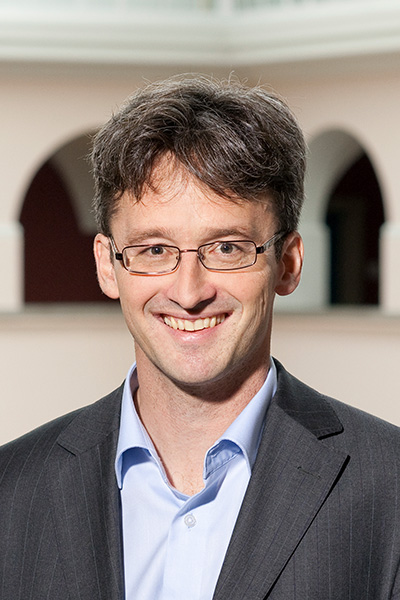
2018-08-28: Companies are increasingly using pricing algorithms that track competitors' prices on the Internet and adapt to them immediately and automatically. The possibilities for machines, whether intended or not, to undertake price-fixing, increase with the advances in artificial intelligence. Who should be held responsible for the behavior of such algorithms? The Neue Zürcher Zeitung spoke with Armin Schmutzler, who is also member of the Swiss competition commission WEKO. He points out the legal challenges of these technological development saying that it is not yet clear whether companies that use self-learning algorithms and, in so doing enable price fixing can be held accountable based on existing law.

2018-08-21: The SRF economics program ECO invited two economists of our time, Ernst Fehr and Hans-Werner Sinn, to discuss current economic topics from their respective research positions: They cover the Euro crisis, labor market regulations, wage and performance transparency and the rising relevance of empirical methods in economics.

2018-08-16: The Financial Times discusses the potential consequences of a small number of US companies becoming increasingly powerful, thus allowing them to widen the mark-ups they can charge on products. The article refers to the paper by David Dorn and David Autor in which they show how the economic weight of a small number of highly profitable and innovative “superstar” companies has increased, while the workers’ slice (i.e. wages) of the overall pie is shrinking. Their research shows that the effect is especially strong in industries experiencing rapid technological change.

2018-08-17: Being connected by direct air links is crucial for economic development, as research by David Yanagizawa-Drott and co-authors, published in the current edition of the Quarterly Journal of Economics shows. The researchers analyzed economic development of cities and their surroundings in regard to their position within the global network of air links. Pairs of cities connected to each other with at least weekly direct flights show higher interconnectedness in terms of business ownership and as well as stronger economic development. Direct air links increase business links and the flow of capital from high income to middle income (but not low income) countries. However, this effect only applies to pairs of cities that lie closer than 6000 miles, a 12-hour flight, apart.
2018-08-03: A team around Dr. Micah Edelson investigated the cognitive and neurobiological processes that influence whether someone takes leadership or prefers to delegate decisions. They have identified the key factor that distinguishes people with leadership skills from others: Responsibility aversion. Leaders are more willing to take responsibility for decisions that affect the well-being of others. Their approach and results are published in the current issue of Science.
Press Review: Deutschlandfunk (Interview), NPR, Bloomberg, Bund, Basler Zeitung, Spiegel, Swissinfo

2018-07-30: The European Research Council has awarded a starting grant to David Hémous for his project “Automation and Income Distribution: A Quantitative Assessment”. The Council awarded 403 grants in total, three of which were awarded to the University of Zurich. David Hémous’ work aims to provide a quantitative account of the two-way relationship between automation and income distribution: Since the invention of the spinning frame, automation has been a key driver of economic growth. Yet, from its beginnings, workers, economists and the public have been concerned that automation may destroy jobs or create inequality. This concern is particularly prevalent today with the sustained rise in economic inequality and fast technological progress in IT and robotics. The empirical literature has shown the impact of automation on income distribution. “In addition”, says Hémous, “the level of wages itself will also affect the incentives to undertake automation innovations.” Understanding this feedback is key to assess the long-term effect of policies such as an increase in the minimum wage or a robot tax.
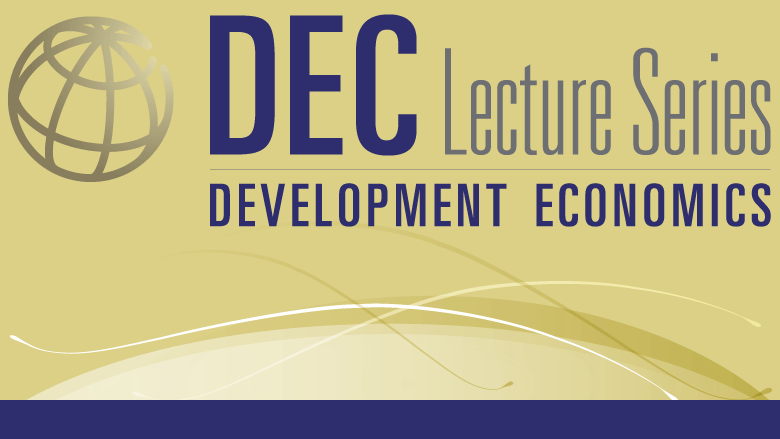
2018-07-18: Dina Pomeranz was invited give a DEC Lecture, a series organized by the World Bank, titled Raising Money for the State: Challenges of Taxation in Developing Countries. In developing countries, it is particularly difficult for the state to enforce taxes, due to the missing information on taxable transactions. In her talk, she explains how a paper trail, generated by third parties can help retrieve the needed information and presents findings from studies she did in Chile and Ecuador on this topic.
Watch the video
Related papers:
No Taxation without Information
Using Randomized Enforcement Letters for Improving Audit Strategies
2018-07-18: An estimated 12-20% of women are affected by depression during pregnancy or after birth, and the figures are significantly higher in poorer countries. Pietro Biroli and his co-authors investigated the long-term effects of Cognitive Behavioral Therapy (CBT) interventions on women from rural Pakistan who were depressed during pregnancy, focusing on their economic decision- making. The effects were impressive: Seven years after the one-off intervention, women who had received CBT had more financial empowerment, were more likely to control over household spending, and were sending their children to better quality schools. The intervention not only benefited the mother, but also the children. The decisions tended to favor girls more strongly, thus reducing gender inequality for the next generation.
Article in The Economist
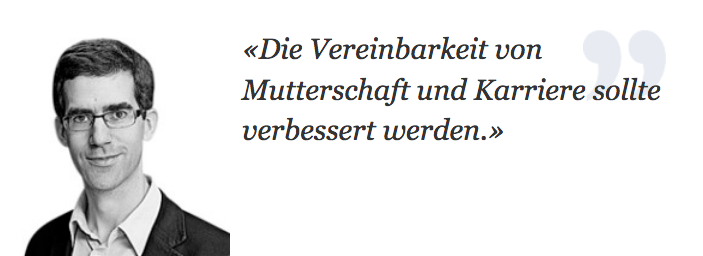
2018-07-17: In Finanz & Wirtschaft David Dorn takes a closer look at the wage inequality between women and men. For a long time, wage differentials that could not be explained statistically were regarded as discrimination. Today, however, much more detailed data is available showing that the pay gap does not necessarily open between men and women, but rather between full-time and part-time employees – the latter being mostly mothers. The question of equal pay therefore turns out to be more a question of adjusting the working hours, so that the disadvantages of part-time work do not affect wages and balancing work and family life is simplified.
Article (in German)
2018-07-16: In an interview with the Sonntagszeitung, Ernst Fehr talks about the connection between happiness and wages: higher salaries make us happier. However, this effect decreases as wages increase and in the high-income segment, the gain in status is ultimately more important than the actual pay raise. Salary as an expression of appreciation also has a decisive effect on the motivation and the quality of work, as Ernst Fehr was able to show in his studies. His own career shows that there are also other forms of appreciation as he explains that - despite good offers from foreign universities - the good research conditions at the UZH and the high quality of life persuaded him to stay in Zurich.
Interview (in German)

2018-07-13: Dina Pomeranz receives the Prize in Scientific Excellence from the German Economic Association for her paper “Dodging the Taxman: Firm Misreporting and Limits to Tax Enforement”. The German Economic Association (Verein für Socialpolitik) awards this prize to young researchers for outstanding publications in peer-reviewed and prestigious journals. Congratulations.
2018-07-13: In many people’s minds populism is seen to be caused by the unfavorable byproducts of globalization, such as job losses or competition from foreign firms. But what about Germany? In spite of a thriving economy the AfD, a far-right party is on the rise. To explain this seemingly contradictory coexistence of economic prosperity and the rise of populism, an article in the Italian Il Sole 24 Ore turns to Joachim Voth and Nico Voigtländer’s 2012 study on anti-Semitism in Germany. Their findings show the e.g. xenophobic attitudes, can endure over long periods within a geographic region. This finding might offer a better explanation to Germany’s current situation than looking for answers based on economic conditions.
Paper: Persecution Perpetuated: The Medieval Origins of Anti-Semitic Violence in Nazi Germany

2018-07-13: In the Neue Zürcher Zeitung, Ralph Ossa outlines reform approaches which could strengthen the WTO emerging from the current trade conflict. The WTO as an institution is not in danger, he says, as international trade cooperation is in everyone's interest and the WTO is largely conducive to this interest. Nevertheless, there are problems within the WTO system that need to be resolved. I.e. he proposes an expansion of plurilateral approaches that would allow sub-groups of WTO members to sign trade agreements, which then also remain open to other members. Such agreements would not undermine the multilateral nature of the WTO as the current free trade agreements do.
Article (in German)
2018-07-12: Pluralistic ignorance - when everyone believes that everyone else believes when in reality nobody believes - leads to inefficiency. In Finanz und Wirtschaft, Joachim Voth shows how our reflecting on the thinking of others leads to unsatisfactory results: heavy student drinking, the limited opportunities for women in Saudi Arabia to work outside the home, or xenophobic tendencies. Our private views often differ from our publicly stated opinions.
Article (in German)
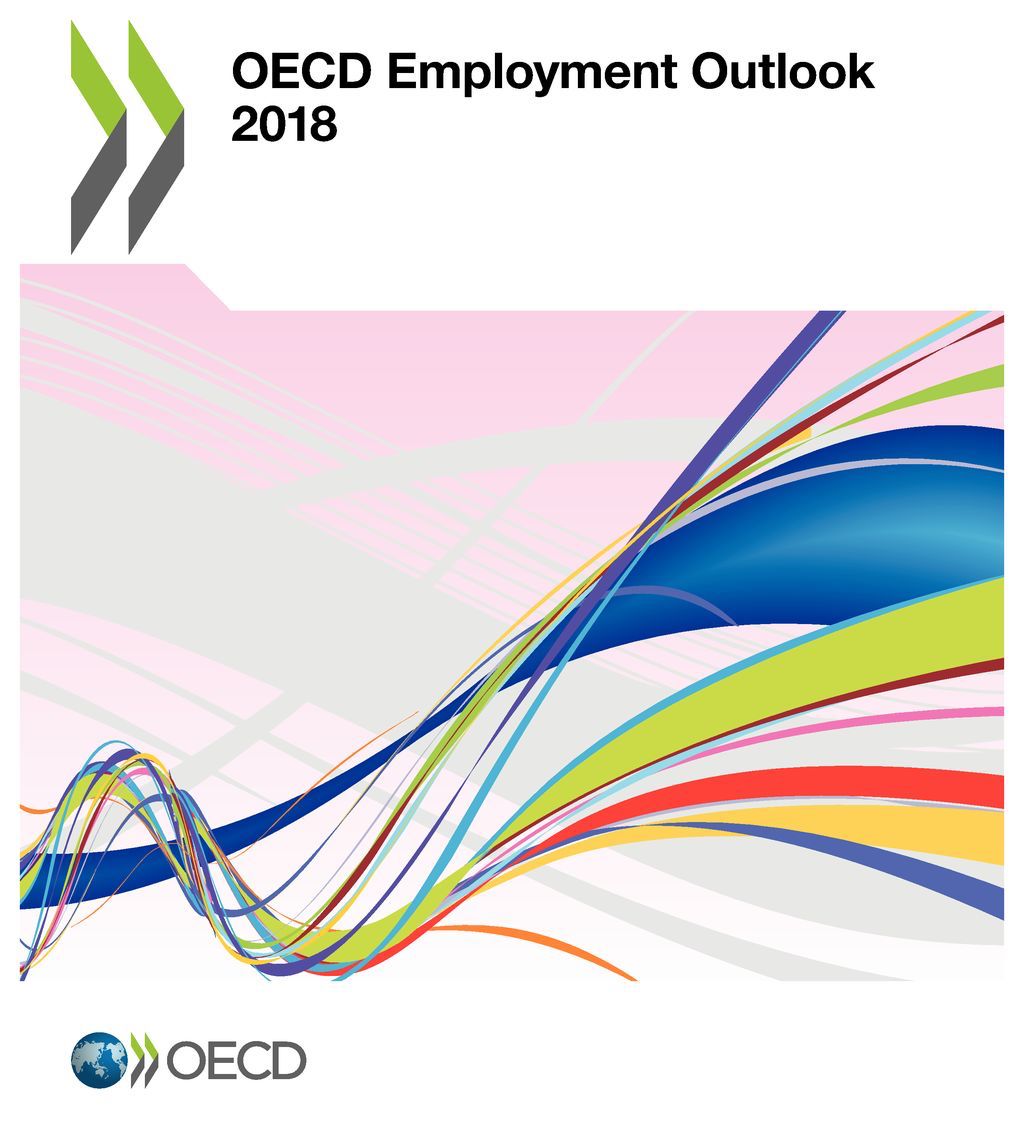
2018-07-12: The OECD recently published its latest employment outlook for 2018, and although the economy has recovered since the financial crisis and the unemployment rate is back close to 2007 levels in most countries, wages have hardly increased. The report lists various reasons for this: the differences in productivity are large and, aggregated, have shown slow growth. The authors of the OECD Report also refer to the research by David Dorn and David Autor on superstar companies to explain the fall of the labor share in GDP.
Article (PDF, 175 KB) in the NZZ am Sonntag (in German)
OECD Employment Outlook 2018, page 60ff
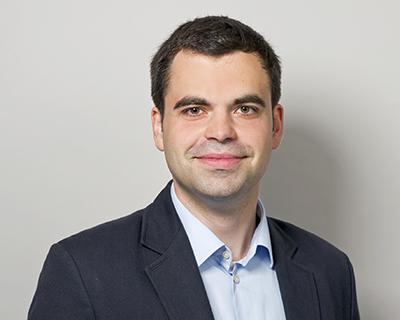
2018-07-11: The Centre for European Economic Research (ZEW), Mannheim, has presented the Heinz König Young Scholar Award for the 20th time. This year's research award goes to Michael Stiefel, PhD student at the Zurich Graduate School of Economics. With this award, the ZEW honours Michael’s research on the role of the European Central Bank in gaining confidence in government bonds of highly indebted EU countries during the sovereign debt crisis in 2012. Michael Stiefel's work makes an important contribution to research on confidence-building in the European financial market in times of crisis. Congratulations, Michael!

2018-07-11: Download and enjoy this podcast featuring Dina Pomeranz talking to Alice Evans about the challenges of raising taxes in poor countries and how third party information can help to increase reporting honesty.
Listen here
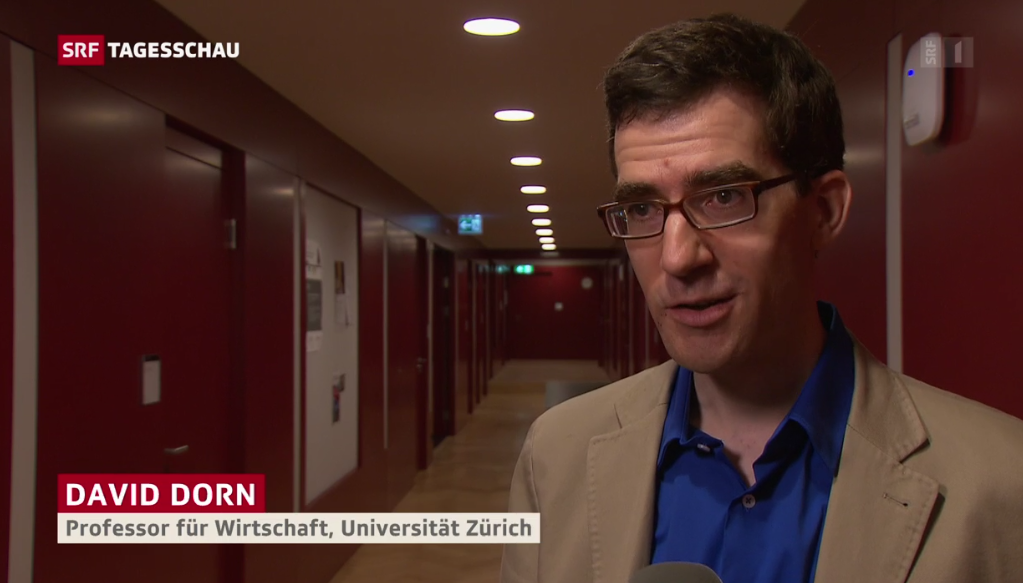
2018-07-11: Following the increase of the US tariffs on steel and aluminum, the Federal Council has initiated proceedings at the WTO and criticizes the flimsy US justification for the tariffs. Switzerland exports steel and aluminum to the USA worth approximately CHF 80 million. In relation to the total exports of CHF 36 billion, steel exports are not crucially important for the Swiss economy as a whole, but "if you go accept such increases in tariffs without putting up a fight, you run the risk that the US will also increase tariffs on other products," says David Dorn in the Tagesschau. "If, for example, similar tariffs are imposed on pharmaceutical products, this would be very painful for Swiss exports".
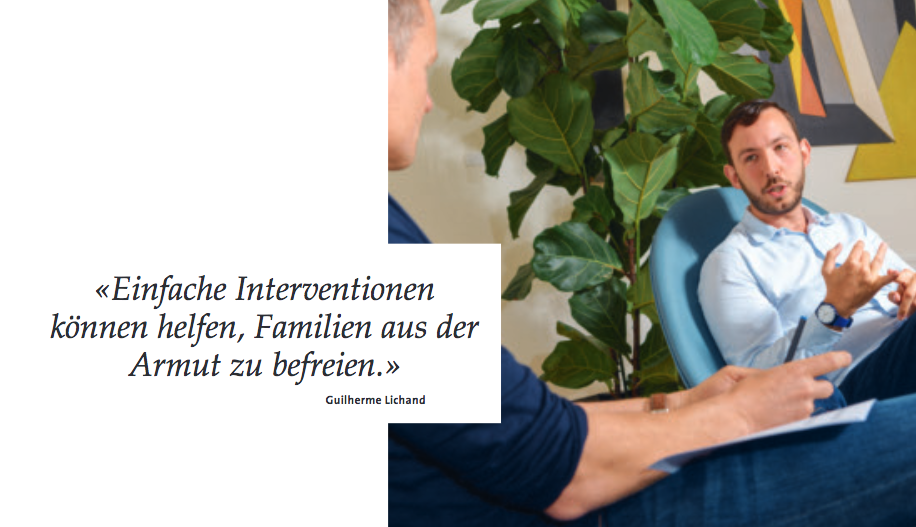
2018-07-10: In an earlier edition this year, the UZH Magazin presented the work of Guilherme Lichand in the article “Per SMS aus der Armutsfalle”. He conducted a study to see how “Nudging” parents in Brasil by sending a SMS twice a week, reminding them of the importance of school, affected their children’s school performance. Though acknowledging that such interventions can work the economic geographer Christian Berndt is skeptical about problem-solving based on behavioural economic research. The new issue of the UZH Magazin resumes this subject and the two researchers debate their different approaches.
Read the article
2018-07-02: The Lemann Foundation, founded by the Brazilian-Swiss businessman Jorge Lemann, is a non-profit organization that promotes quality public education in Brazil and supports people and organizations in solving the main social challenges in the country. In June, the Department hosted the Lemann Public Leaders’ Workshop on Building an Agenda for Education and Drug-based Violence. From among the Lemann Public Leaders, Fellows and Education Talents the Lemann Foundation chose 20 to come to our Department for exchange and inspiration. The intensive workshop, which received a very positive feedback from the participants, covered research findings on early childhood development, educational technologies, intended and unintended consequences of drug policy changes, and political obstacles and opportunities. They visited drop-in centers for drug addicts and heard about the lessons learned from Zurich’s past open drug market «needle park». Just as importantly, the participants debated the presented findings, discussed their takes on priorities for Brazil and proposed policy changes.
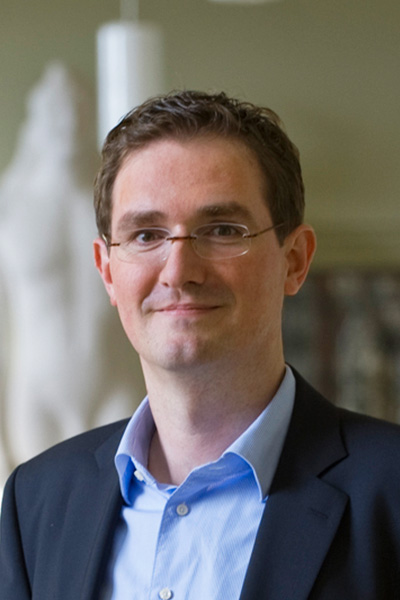
2018-06-29: In his column Free Lunch in the Financial Times Martin Sandbu takes a look back at the Conference “The Euro at 20” which took place earlier this week and was organized by the IMF, the Central Bank of Ireland and the IMF Economic Review. Highlighting those findings presented which particularly caught his attention he also talks about the paper by Mathias Hoffmann co-authored with Egor Maslov, Bent E. Sorensen and Iryna Stewen Are capital market and banking union complements? Evidence from Risk Sharing Channels in the EMU.
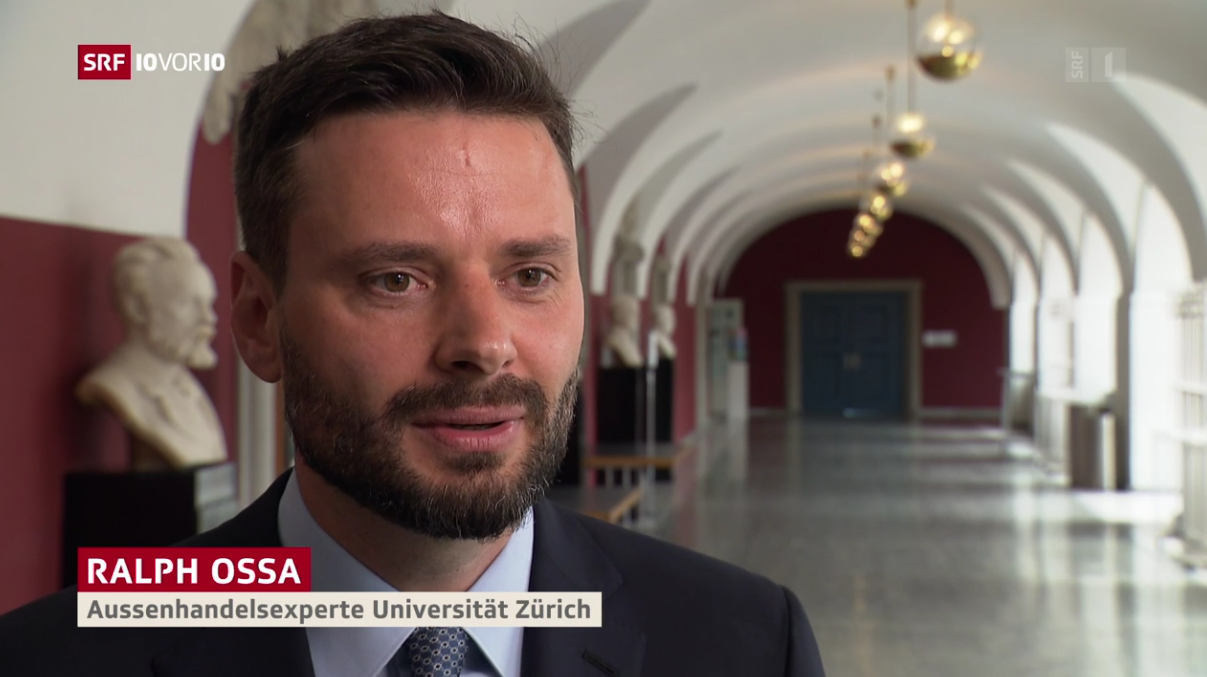
2018-06-26: The increase of tariffs by the US and China’s threatened countermeasures could kick off an international spiral of protectionism. This increases the likelihood of a global trade war. Ralph Ossa comments on the current exchange of blows between the two largest economies in 10vor10. His research projects that a global trade war could cost the world economy around 6% real income.
Article in the NZZ (in German)
Feature in 10vor10 (in German)

2018-06-13: Guilherme Lichand’s article on Social Impact Bonds (SIBs) and the potential of blockchain in increasing the effectiveness of SIB-projects. Lichand says that even though blockchain is neither necessary or sufficient for increasing SIBs’scale, well-designed blockchain system could be useful to enforce the redistribution to SIB beneficiaries of the surplus they contribute to when enabling investors to better verify deliverables, or to better diversify their risks.
Read his two-part piece here
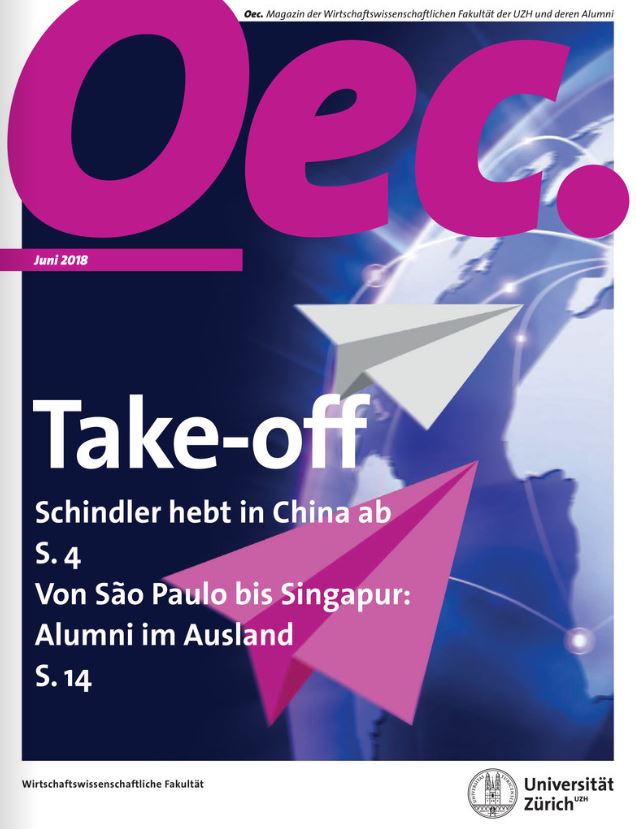
2018-06-12: Hot off the press: The current edition of the Oec.Magazin has just been published and includes an interview (in English) with Florian Scheuer on why we should consider taxing robots and how we could curb tax avoidance internationally by introducing an idea that has been floating around for a few decades. Also: Ralph Ossa explains why the WTO and stable trade relations are so important to all economies
Download here
2018-06-10: The US argues that they increased import tariffs for reasons of national security. In the NZZ am Sonntag David Dorn explains that this argument puts the WTO in a difficult position, as it forces it to take a position on a political issue. From the US perspective, it is attractive to negotiate bilateral trade agreements, as their relative power position enables them to negotiate better conditions than if they are involved in multilateral agreements. David Dorn notes that it is important for Switzerland and other smaller countries to coordinate with other countries and to form a united front against the violation of WTO rules, as Switzerland's standard of living largely depends on the widest possible access to open markets abroad.
Article (in German)
2018-06-01: If technology-induced job losses are rapid, and affect a large part of the workforce, the risk of unrest can quickly become serious. Joachim Voth and Bruno Caprettini look back at the Swing Riots of the 1830s in England to identify mitigating factors (i.e. alternative labor markets, social welfare) increasing or decreasing the risk of social unrest following technological change. The authors also found negative effects on future innovation and prosperity in areas of greater unrest. They conclude that societies in the process of adopting technologies with such fundamental effects on the labor market are well advised to cushion the initial blow. The possibility of alternative employment or minimum income guarantees are key in reducing the risk of unrest and its long-term implications.
2018-05-30: The Econometric Society promotes the advancement of economic theory in its relation to statistics and mathematics and publishes the journals Econometrica, Quantitative Economics, and Theoretical Economics. As of July 1, 2018, Florian Scheuer will serve as a co-editor to the journal Theoretical Economics, one of their open access journals.
Theoretical Economics Homepage

2018-05-28: Ostracism within a group is likely to be an unintentional side effect of our tendency to team up with individuals with whom we have had previous good experiences, and not so much a deliberate exclusion of an individual based on their behavior, as Björn Lindström and Philippe Tobler from the Department show in their paper recently published in Nature Human Behaviour. Initiating and mixing up early interactions increases the probability of being part of the gang.

2018-05-28: David Hémous was nominated one of the three front-runners for the Best Young French Economist Award by Le Cercle des économists. His main research interests are green technologies and the effects of technological advances on income inequality. David Hémous has developed a model showing how growing economies with rising incomes tend to favor technological developments in the area of labor replacement. This means that automation has an endogenous effect on income distribution and stands in contrast to classical approaches assuming that an increase in income inequality is always based on exogenous shocks.
Interview in Le Monde (in French)

2018-05-29: In the autumn semester, the Department of Economics will offer a lecture on the topic of "Marxist Political Economy". This as part of the Plural Economics program, which was developed in response to students' suggestions. The Tagesanzeiger asked Rainer Winkelmann why Marx's economic approaches are important as part of a broad theoretical knowledge for students and how the course fits into the curriculum.

2018-05-24: Are students who cheat for financial gain more likely to misbehave at school? This question is the starting point of a study conducted by Michel Maréchal and Alain Cohn from the University of Michigan. 162 Students from Swiss Schools were asked to truthfully record the results from flipping a coin, being able to keep money if the coin came up as heads. The outcome was cross referenced with teacher’s evaluations of those student’s behavior. Futurity gives a short overview on the setup and outcome of the Study and talked to the researchers.
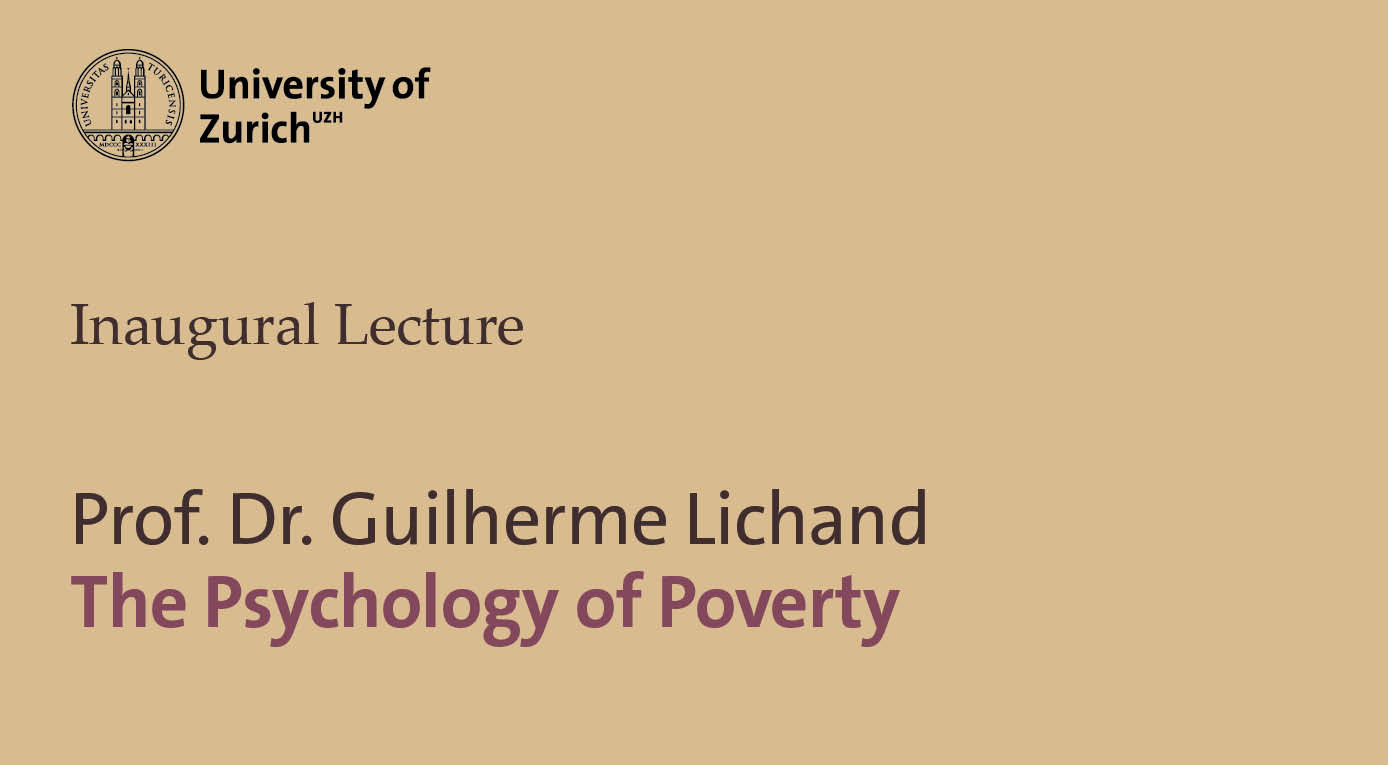
2018-05-23: Did you miss the inaugural lecture of Guilherme Lichand? Catch it here and hear him talk about his research on how poverty impacts decision-making.
2018-05-22: The American Economic Review announced their list of awards for referees who provided exceptional service to the Review by a large number and quality of referee reports in 2017. This year, Björn Bartling, Lorenzo Casaburi, David Dorn, Marek Pycia and Joachim Voth received the AER Excellence in Refereeing Award for the dedication and time they devoted to the advancement of the field of economics.
Read more

2018-05-14: Sendhil Mullainathan (Harvard) came to the Department to talk about “Economic Applications of Machine Learning”. During his talk he discussed in which situations (e.g. when predictability itself is of economic interest) machine learning is a stronger tool than the traditional approach of econometric regressions.
Reread Dina Pomeranz’live tweet feed from the presentation with slide shots.
More about Sendhil Mullainathan.

2018-05-07: An exclusive event organized by the Department of Economics and the American Swiss Foundation (Swiss Advisory Council) offered 100 people the opportunity to hear Jay Clayton, chairman of the US Securities and Exchange Commission (SEC) speak at the University. In his presentation, he explained the U.S. regulatory agenda and the underlying strategy.
01.05.2018: In the «Talk im Turm» at the UZH, educational scientist Katharina Maag Merki and economist Florian Scheuer discussed equal opportunities in education and a tax policy based on performance incentives instead of redistribution. Taxes are considered the instrument of choice to balance the differences between rich and poor. However, increasing taxes alone will not make the world a fairer place, Florian Scheuer explains. The focus of tax policy still remains too strongly on redistribution. From an economic point of view, it makes more sense to see tax policy as an instrument to provide incentives for productive activities.
Watch the Video here (in German)
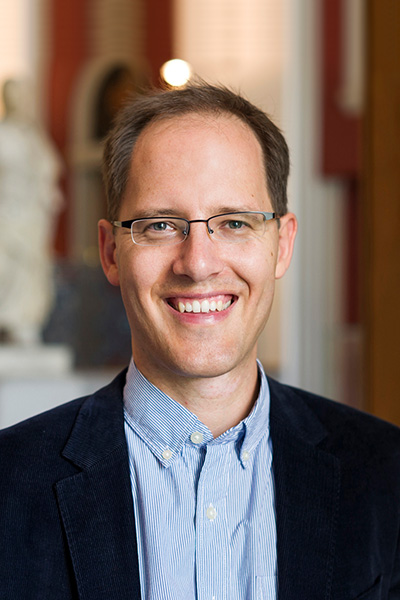
24.04.2018: The German edition of Forbes interviewed Florian Scheuer on the polarization of income and wealth distribution and appropriate tax policies. In contrast to previous advances in automation, robots will increasingly also perform cognitive tasks. This has unforeseeable consequences for the labor market and income distribution. What is certain, however, is that polarization will continue to increase. In order to strengthen democracy and avoid the dystopia of a divided society in which the super-rich define politics, income redistribution is necessary. In this context, regional economic policy will become increasingly important in the future, says Scheuer.
Article (in German)
2018-04-08: ECONtrack, our relaunched Newsletter is out. ECONtrack will keep you on track with the many activities at the Department. We have stripped the boring stuff and only present some of our most interesting output, well aware that not everything we find mouthwateringly exciting exerts the same reaction in our readers. Nevertheless, much of what we do is relevant, thought-provoking, and noteworthy, so please enjoy a browse through the latest edition.
Download here (PDF, 4 MB)

2018-04-17: The Italian Corriere della Sera takes a detailed look at the feasibility of the promises made by the political party M5S. On the idea of a wealth tax, the article points out that a wealth tax would create liquidity problems for most households who might have to sell their homes or their businesses to pay for it. Also, it would hit the wealthy North more than the South, especially as the South has a significant quota of houses not registered in the land register. On this topic, the article refers to a paper by Lorenzo Casaburi, «Ghost-House Busters: The Electoral Response to a Large Anti-Tax Evasion Program».
Read Article (in Italian)
Read Paper
2018-04-17: Prior to the annual conference of the Center for Child Wellbeing and Development (CCWD), the Tagesanzeiger spoke with Michael Kremer, development economist at Harvard University, about the topic of his lecture, the effects of deworming on child health, and what motivates him in his research. Since travelling to Kenya for the first time in 1985, he wants his research results to create the basis for effective and meaningful development work, which he illustrates with a few simple but successful project examples.
2018-04-17: We congratulate both Gregory Crawford and Rainer Winkelmann for receiving grants from the Swiss National Science Foundation (SNSF). Gregory Crawford received CHF 500,000 for the measurement and analysis of "Media Bias in Public Service Broadcasting" and Rainer Winkelmann CHF 180,000 for his project "Fixed Effects Estimators for Binary and Fractional Response Models."
2018-04-10: 152,400 francs: this is the sum paid last week for the Zurich license plate "ZH 987". The NZZ am Sonntag looks at why we are willing to pay so much for so-called position goods, status symbols without any immediate practical benefit. The towers in San Gimignano, Tuscany, prove that this conspicuous consumption has always existed. But is it harmful? The data show that it could be, says Joachim Voth, on the basis of an example from Canada, which shows that in neighborhoods with lottery winners, people suddenly felt compelled to spend more in order to keep up with their rich neighbors.
2018-04-06: Einstein, the science program on Schweizer Radio und Fernsehen (SRF), examines various possibilities of brain doping. For this they also visit the SNS-Lab and observe how transcranial brain stimulation, i.e. the stimulation of brain regions with current, influences the ability to solve mathematical tasks. Brain stimulation of all kinds is predicted to have great potential. Christian Ruff explains the possibilities of improving brain performance (neuroenhancement) and puts forward the questions that still need to be answered.
Watch here (at 24'20")
2018-04-05: Manuel Sager held a Department Lecture on March 26 to a full hall. He presented how the Swiss Agency for Development and Cooperation (DEZA) ensures that the funds for development cooperation are implemented efficiently and effectively and discussed current challenges as well as learnings from the past.
Video from the presentation.
Further information: DEZA in brief Report
2018-04-02: Over the past few decades, game theorists and behavioral economists have designed experiments to better understand motivation, and the decision-making process. At the same time, social neuroscientists have been studying the exact same things — just with a different approach. The two fields work in parallel. They are studying the same questions about decision-making, and they often come to the same conclusions. In his paper in the March issue of the Journal of Economic Literature, Carlos Alós-Ferrer makes the case for more interdisciplinary work. Sharing tools, methodologies, and insights can strengthen both disciplines. After all, they are fundamentally connected. “When we study society, whether or not we want to, we are studying the brain,” he says.
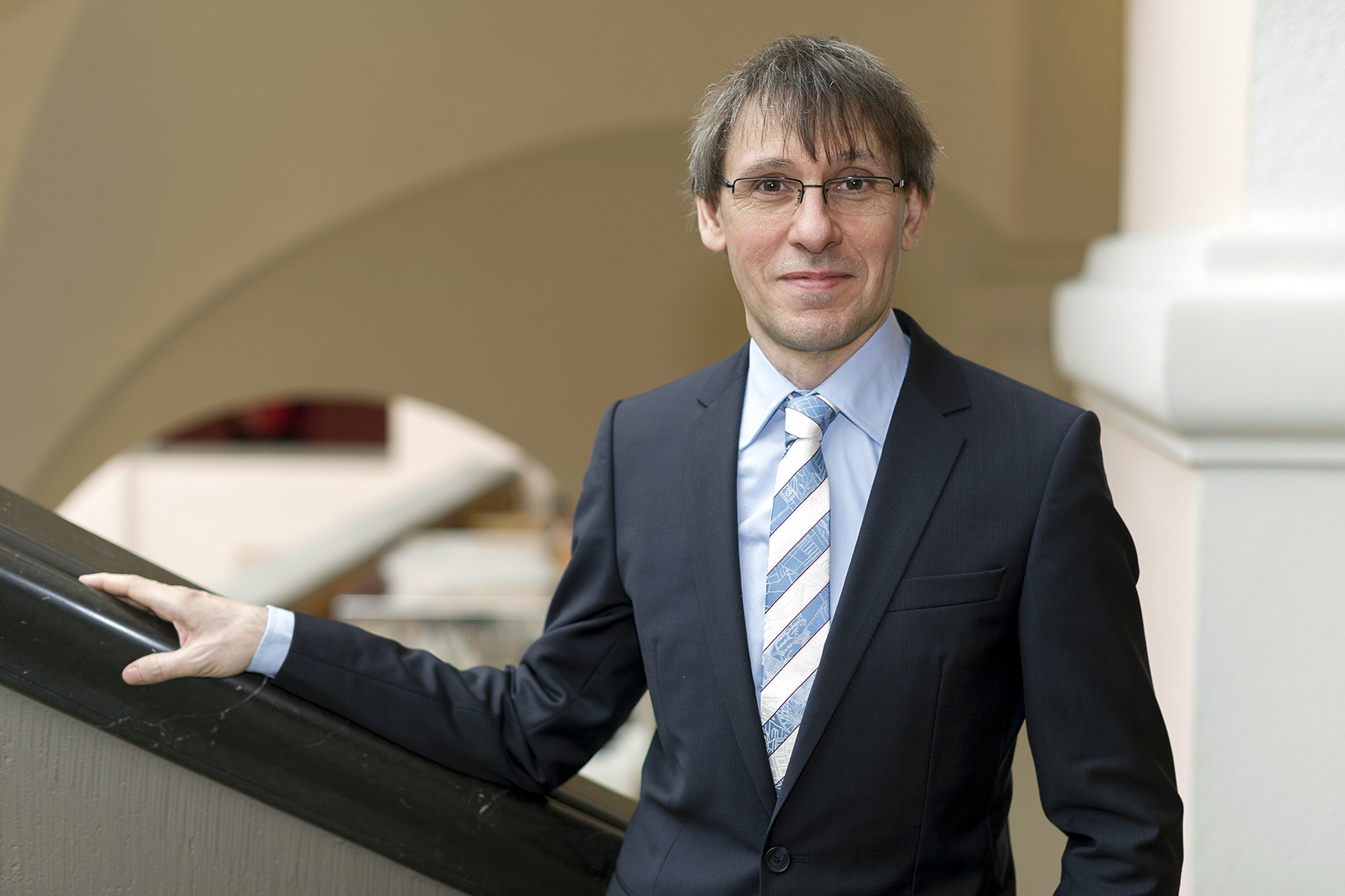
2018-04-04: Carlos Alós-Ferrer received a Swiss National Science Foundation (SNSF) Grant of 1.1. Mio Swiss Francs over four years to advance his research project "The Neuroeconomics of Conflict and Preference Strength in Decision Making".
Congratulations!
2018-03-29: Until recently, trade wars were a rather theoretical matter, even for Ralph Ossa, who has been researching the topic for years. With the US announcing new tariffs on aluminum and steel, this possibility has moved back into the realm of the possible. Talking to the Weltwoche, Ralph Ossa explains why the Americans' argument for the tariffs puts the WTO in a dilemma, and why many politicians mistakenly believe that exports are better than imports.
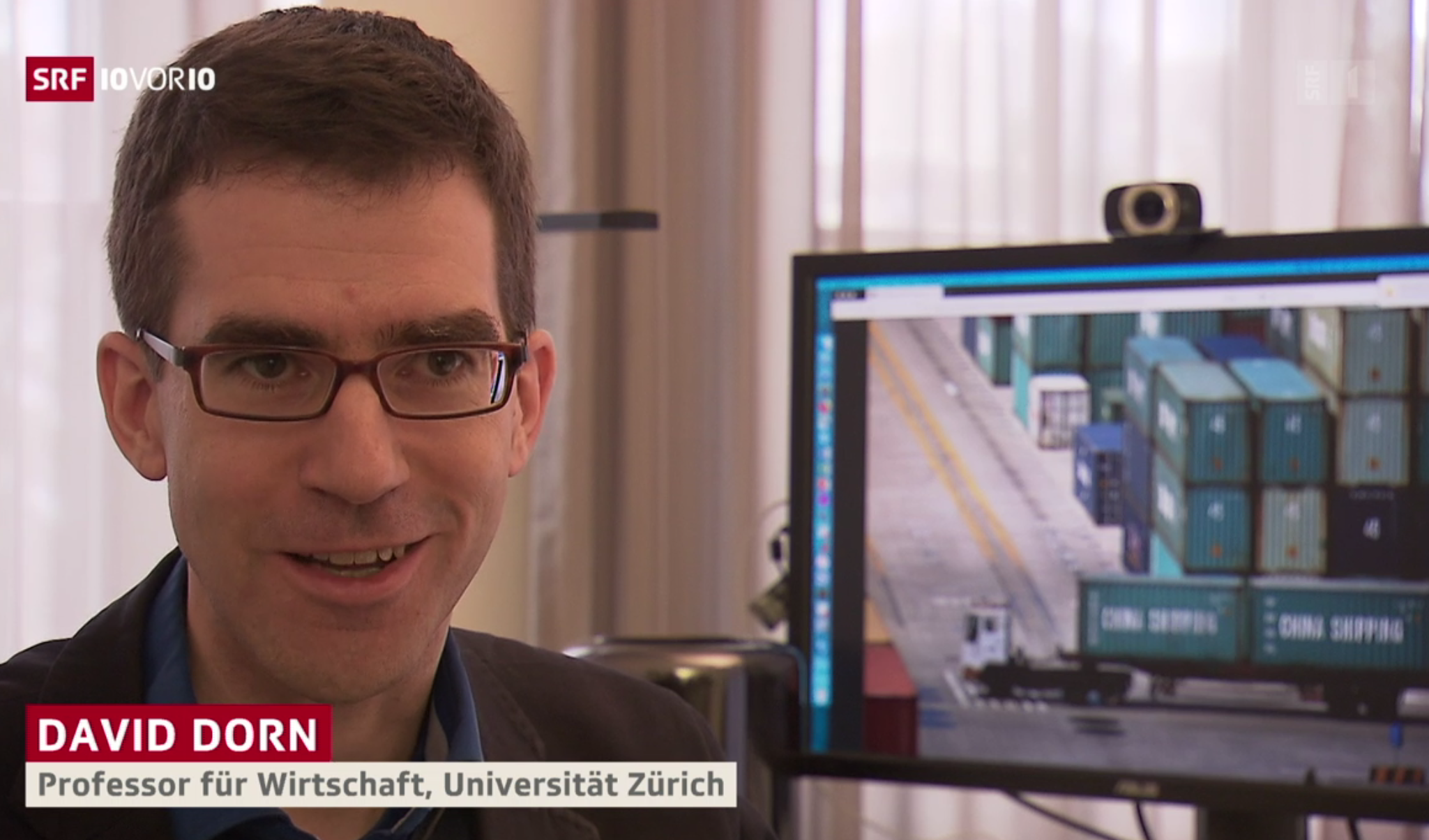
2018-03-27: Shortly after the raise of tariffs on steel and aluminum, Donald Trump makes the next move in his power struggle with China: retaliatory tariffs on Chinese imports up to 60 billion Dollars. China responded with the announcement of comparatively mild tariffs worth 3 billion dollars on selected US products. 10vor10 examines whether the threats could indeed lead to a trade war and asks David Dorn how he views China's reaction.
2018-03-21: A currency’s central functions are to simplify the exchange of goods and reduce transaction costs. To do this it needs to be easily and cheaply accessible for a maximum number of users and offer a stable and predictable value. “Crypto currencies such as Bitcoin fulfil none of these requirements satisfactorily”, says Joachim Voth in the current edition of the Finanz und Wirtschaft. Therefore, they will remain in the murky areas of criminal activity, where the very large gains make up for such high transaction costs.
Read the pro and con statements here (PDF, 98 KB)
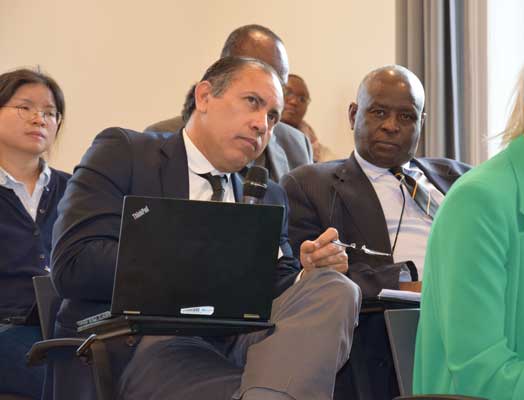
2018-03-23: The CCWD third annual conference took place at the University of Zurich on Friday March 16. About 70 delegates from Europe, Africa, and the U.S. –comprising scholars and university students, UNICEF representatives, development practitioners, and some government officials –gathered to hear world-class experts on child development discuss their work and major issues in the field. The conference concluded with a closing keynote speech by Michael Kremer, Gates Professor of Developing Societies at Harvard, on “The Long Run Impacts of Improving Child Health: The Case of Deworming”.
Reports and presentations from the conference can be found here
2018-03-23: A recent New York Times article takes up the "China Shock" paper. This groundbreaking work by David Dorn, David Autor (MIT) and Gordon Hanson (UCSD) shows that workers in countries whose industries were exposed to competition from China have lost jobs and suffered wage declines, with far-reaching social consequences.
China Shock Paper
2018-03-23: The wage ratio, i.e. the share of wages and salaries in national income, lies at 68.7 percent in Germany today. In 2000, the figure was still at 72 percent. In addition, real wages have fallen in many sectors since the 1990s. As a result, around 40 percent of the population has no savings at all. Taken together, these factors "mean that many people and households are in debt or have only a very modest account balance," says David Dorn in an interview with Business Insider. In this respect, the situation in Germany is not much different from that in the USA and points to a disturbing trend.
Article in German
2018-03-18: This week Donald Trump introduced the new tariffs on steel and aluminum imports. The NZZ am Sonntag takes a look at the power struggle between the USA and China, and how Europe is drawn into it. A comparison of the import tariffs of the USA and the European countries shows what consequences the new increase could have and with what promises the USA is looking for allies against "unfair Chinese trade practices". Ralph Ossa explains why he pleads for the preservation of the existing free trade agreements and what an escalation of the situation would mean.
Article (in German) (PDF, 763 KB)
2018-03-21: In an interview with Wirtschaftswoche, Ernst Fehr talks about why bonuses make sense for managers, but are usually too high these days. He believes that there should be a link between a company's performance and bonus and explains why today, this is often no longer the case. Read more about his suggestions for alternative compensation systems and why he is against a limitation of management salaries here.
2018-03-16: The New York Times takes David Dorn and David Author's paper The China Shock: Learning from Labor Market Adjustment to Large Changes in Trade as a starting point to explain the impact of China joining the World Trade Organization (WTO) on the US economy and discuss possible scenarios to counteract it.
Paper by David Autor, David Dorn and Gordon Hanson

2018-03-15: Bruno Caprettini has been awarded a Mercator Award for his research on Structural Change and Agricultural Technology. The Mercator Awards for Junior Researchers give recognition to the outstanding scientific achievements of advanced PhD candidates and early postdoctoral researchers from the University of Zurich. Every year three prizes are awarded to researchers for their scientific quality, originality, societal relevance and inter- or transdisciplinary approach. The Award Ceremony will take place 3 July 2018.
Congratulations.
Article from UZH News (in German)
Video (MOV, 39 MB) with Bruno Caprettini

2018-03-14: In Brazil, three out of four parents do not know whether their child has homework, and about half of them do not know whether their child has problems at school. This led Guilherme Lichand to the question: How can parents be encouraged to follow their children's school life more closely? Starting from the premise that poverty and a consequent lack of attention leads to bad decision-making, he wanted to know whether attention could be directed. Different ways of informing parents about their children's school attendance were investigated: one group received regular detailed information directly from the teachers, the other group received a text message twice a week reminding them of the importance of attending school. The SMS resulted in reduced absences, increased learning speed and reduced repetition rates. In an interview with Swissinfo, Guilherme Lichand talks about the significance of technical conditions, how the state benefited from the reults and why the same experiment would not work in Switzerland.
Article (in Portugese)
2018-03-13: Productivity growth has slowed notably in the last decades, compared to the pre 1970ies. This has an impact on the entire economic process and society’s prosperity, says Joachim Voth in his opinion piece in Finanz und Wirtschaft : "As much as new IT products enthuse us, the progress of recent decades seems to be insubstantial in comparison with previous breakthroughs such as electrification, cars or penicillin". He explains why productivity growth has slowed, investments in basic research are declining, and how the capitalist logic has fueled this development.
Article (in German)
2018-03-09: The current edition of nature features a study on how a simple moral rule suffices to drive the evolution of cooperative behavior within societies, where interactions are often indirect and complex. Ernst Fehr and Charles Efferson, discuss the findings and summarize: The relatively simple norm of stern judgement, i.e. cooperate with people you have seen or heard to be cooperative and do not cooperate with people who you have seen or heard to be uncooperative - goes a long way explaining the evolution of cooperation in society. However, in reality there is variation in the levels of subtlety people use when interpreting actions they see or hear about. In such experiments, Fehr and Efferson also point out, strategies and mechanisms are often regarded to be mutually exclusive. In reality however, we probably have a combination of multiple mechanisms, which is especially potent at promoting the evolution of cooperation.
Comment in Nature
Original Article in Nature
2018-02-28: “If we want to find a way out of poverty we need to understand how it affects our brains and cognitive ability”, says Guilherme Lichand, “as evidence from the field clearly shows that it does”. Our brains have limited bandwidth and poverty absorbs a lot of our attention, leaving less for more long-term and strategic thinking processes. Interventions need to be appropriate, timely and simple enough so they do not need a lot of cognitive energy on the part of the recipient, as they often simply do not have enough left. Part of his research focuses on cost-effective ways to increase school attendance of disadvantaged children in Brazil and, based on his findings various initiative have been implemented.
Article in UZH Magazin (in German)
2018-02-27: Income is not equal to income, says Florian Scheuer, and suggests a tax system that takes into account its origin. He distinguishes three categories of top earners: fat cats try to eat as much cake as possible, without contributing to the baking. Profiteers, such as high frequency traders, make profits from a system through technical optimizations. They too contribute little to the economy. And finally the superstars, top managers in large companies who, through leverage effects, generate productivity and income for the whole economy. Tax systems should consider these differences and provide incentives to promote activities that benefit the economy as a whole.
Article in UZH Magazin (in German)
Research Paper: The Taxation of Superstars

2018-02-23: Thanks to a donation of ten million Swiss francs from the Larsson-Rosenquist Family Foundation, the Department is opening a Centre for Economics of Child and Youth Development with a Focus on Breastfeeding. The Center with its associated professorship is a valuable complement to the Department’s existing research field of child and youth development.
Research into the influence of early childhood nutrition on health, cognitive and social skills in adulthood has its own challenges. It requires a long-term research horizon, interdisciplinary approach and complex methodological approaches.
Article in Neue Zürcher Zeitung (in German)

2018-02-23: Prof. Dr. Carlos Alós-Ferrer joins the Departement as of March 1, 2018, as Professor for Decision and Neuroeconomic Theory. Prof. Alós-Ferrer studied mathematics at the Universitat de València, Spain, and holds an MSc in Quantitative Economics from the University of Alacant, Spain, where he received his doctorate in 1998. Before joining our Department, he held Assistant and Associate Professorships at the University of Vienna and a professorship in microeconomics at the University of Konstanz and, most recently, at the University of Cologne.
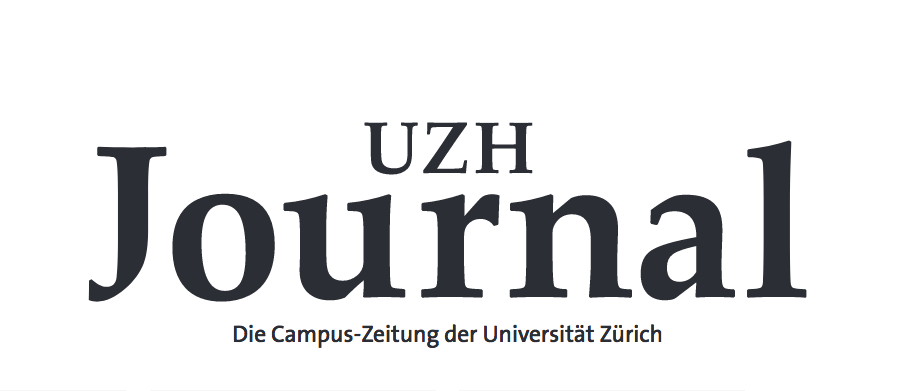
2018-02-16: The current issue of the UZH Journal lists the top ten of all media releases by the University of Zurich in 2017. Research topics with a link to personal experience are most often taken up by the media. With its research on the different reactions of the brain to generosity between men and women, the SNS Lab ranks second and accounts for three of the top ten releases.
2018-02-14: In the current issue of Finanz und Wirtschaft, David Dorn looks at the changes in employment types. Switzerland plays a pioneering role regarding part-time positions. Due to the relatively high wages, part-time work is much more popular here than in the surrounding European countries. Dorn notes that, when assessing flexible forms of work, it is important to consider whether flexibility primarily benefits the companies or the employees.
Article (in German)
2018-02-13: With robots replacing many of the mid-tier jobs, the gap between the highest and lowest wages increases. Should robots show some solidarity and participate in taxes paying for unemployment benefits? Florian Scheuer believes we should at least think about it, but need to consider the consequences of a tax on «automate workers»in an international context. Interview by local Radio32.
Listen here

2018-02-09: Since the turn of the century, different social, cultural and economic developments have changed the USA to its core: Rising diversity and racial division, inequality and the discontents of a free-market world, political polarization, and the threats of foreign competition and slowing growth, present the country with new challenges. Noah Smith, Columnist at Bloomberg View, has compiled a reading list addressing these subjects to help deepen the understanding of modern America. The paper "The China Shock" by David Dorn, David Autor and Gordon Hanson made the cut and is described as a "landmark economics paper, which really deserves to be turned into a book".
2018-02-06: Lydia Hellrung, received a Marie Skłodowska-Curie Individual Fellowship Grant from the European Commission for her research on Dopaminergic midbrain modulations by (adaptive) neurofeedback. With this project, she aims to understand the influence of the dopamine system on value based decision-making, such as whether a specific reward is worth enduring some kind of punishment. To date, this is a much-debated area with little empirical investigation.
Congratulations!

2018-01-31: The programme "Dans la tête de" on RTS takes an in-depth look into the mind of cheaters. Why do people cheat and when? Various examples from daily life, sport and research show that the temptation to be dishonest is greater if, for example, you feel unobserved or have the feeling that the majority of others are doing the same. With interviews and smaller experiments, the programme tries to show how people define cheating and how moral values influence our actions. On the hypothesis that dishonesty in the financial world is culturally determined, Michel Maréchal talks about his research and the results of a study he carried out on this subject.
Video on RTS (in French)

2018-01-31: Very few smallholder farmers are taking out insurance against the risk of losing their crops and thereby their entire income. Lorenzo Casaburi conducted a trial which analyzed the adoption rate of insurance depending on the timing of insurance payments. The results show that the demand for crop insurance increases from 5% to 72% if farmers are offered the possibility to delay the payment of the insurance premium.

2018-01-22: In an interview with Radio SRF, Dina Pomeranz talks about OXFAM's study on wealth distribution, which was published this week. She emphasizes the need to differentiate between income and wealth, since inequality mainly affects wealth, while the trend in income is moving in a different direction than the study suggests. Over the last decades, living standards have improved significantly in developing countries. She also explains the prerequisites to build up wealth and discusses measures to counteract inequality.

2018-01-09: In the current edition of Nature Neuroscience Christian Ruff and his co-authors Rafael Polonia and Michael Nitsche summarize the state of non-invasive brain stimulation research in humans, discuss some current debates about properties and limitations of these methods, and give recommendations for how these challenges may be addressed.

2018-01-09: Michel Maréchal has been appointed Associate Editor to the Journal of the European Economic Association (JEEA). He is the second representative from our Department in this role, alongside David Dorn. The JEEA was established in 2003 and has meanwhile risen to be one of the top ten journals in economics. The aim of the European Economic Association is to help base economic decision-making on scientific principles, facts and economic theory, rather than on political discussions.
2018-01-08: In an Interview in Blick, David Dorn gives an optimistic outlook on the Swiss economy in the face of the rise of Chinese manufacturing power. With its history of specialization and international trade, Switzerland is in a good position to further increase exports. Dorn also argues against automation-pessimism and points out that the effects of technological change are slower than, i.e. changes in the global trade structure. Whereas changes in international trade have an immediate effect on whole sectors of an economy, advances in technology affect individual job-roles, leaving more room and time for the economy to adapt. However, not all is blue skies and sunshine: The polarization in the job-market and the loss of middle-income jobs is a challenge all societies face.